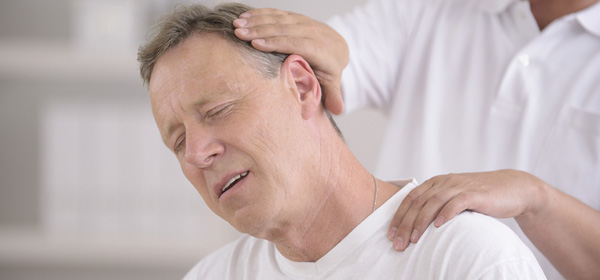The Federal Government’s decision to allow health fund insurers to drop cover for alternative therapies to treat chronic conditions will put the health of older Australians at risk.
The decision and resulting changes, which will come into effect from April 2019, have been scrutinised.
In response to the fallout, the Government is being urged by a peak body to formulate a health policy that acknowledges the preventive benefits of natural therapies.
“(We propose) the convening of an Industry and Department of Health taskforce to develop an integrated health policy that includes the contribution of complementary medicines in preventive health,” Complementary Medicines Australia (CMA) said in a pre-Budget submission.
The CMA said it would contribute to the cost of setting up a secretariat to help develop such a policy.
With almost three-quarters of Australian seniors privately insured by a health fund, retirees have the most to lose from the Government reforms.
Fewer than half of all Australians have private health insurance, so as a proportion, older people are the ones propping up the sector.
While there is a little good news emerging from the reforms – supposedly cheaper implants for pacemakers, defibrillators, and hip and knee replacements – there are several treatments that will no longer be covered. These complementary and alternative therapies mostly benefit older people who, as a group, have higher levels of chronic conditions compared to the rest of the population.
If health funds drop cover for certain therapies, as proposed, many older Australians may not otherwise be able to afford them. Meanwhile, their chronic conditions will not be alleviated unless their doctors treat them with medications.
Increasingly, seniors are seeking ways to gain relief from medical conditions without having to resort to pharmaceuticals. This reform means that those people will remain sick and in pain if they cannot afford alternative therapies.
So far, more than 74,000 signatures have been collected by YourHealthYourChoice to fight the changes. The petitioners are calling for a Senate inquiry into bias against natural therapies and why government-funded reports have ignored positive evidence.
“The growing consumer demand for products and services that fall outside of orthodox prescription medicines should not be ignored; rather consumer empowerment and integrated healthcare should be vital elements of health in Australia,” according to CMA.
“Clinical indications and claims made by complementary medicines are not always trivial.”
The organisation said there were verified benefits of using these therapies to avoid the onset of dementia, osteoporosis and secondary prevention of cardiovascular
“A 2014 Frost and Sullivan report Targeted Use of Complementary Medicines: Potential Health Outcomes and Cost Savings in Australia shows robust links between several of the more well-known complementary medicines with reduced risk of a secondary disease event among high-risk groups, and with major potential healthcare cost savings.
“The report examined the use of six complementary medicines across four chronic disease conditions – cardiovascular disease, osteoporosis, age-related macular degeneration and depression – all of which contribute heavily to the national burden of illness in Australia.”
The Government claims that the therapies can be dropped by insurers because there is no evidence of their clinical benefits. That claim is wrong. There have been hundreds of scientific studies (see links below) showing that the therapies improve the overall health of older people. These are some of the proposed therapies – and how they help keep older people healthy – that are on the hitlist:
Feldenkrais
These movement classes are helpful to older adults for promoting balance, mobility and confidence.
Yoga
Weight-bearing poses have been proven to increase bone density, alleviating osteoporosis.
Tai chi
The practice of tai chi has been shown to reduce the incidence of falls among practitioners. Tai chi students have also shown improved quality of sleep.
Pilates
Several studies (not to mention several million people in Asia) have found that Pilates exercises improve physical, social, spiritual and emotional wellness.
Alexander technique
This program dates back to the 1890s and can be used to retrain people’s gaits so they are less likely to fall and fracture bones. It is also useful for alleviating long-term back and neck pain.
Aromatherapy
A study of Chinese dementia patients showed that exposure to lavender aromatherapy reduced the incidence of agitated behaviour.
Homeopathy
Despite current cynicism, homeopathy was mainstream medicine a century ago before the rise of the pharmaceutical industry. Its remedies can be used to alleviate dozens of conditions.
Do you use complementary medicines and if so, which ones? Have you found the alternative therapies have helped with a chronic medical condition? Will the reforms prevent you from using complementary therapies from next year?
Related articles:
Insurance cop fires blanks
Uncovering health insurance reform
Seniors to feel insurance pain

